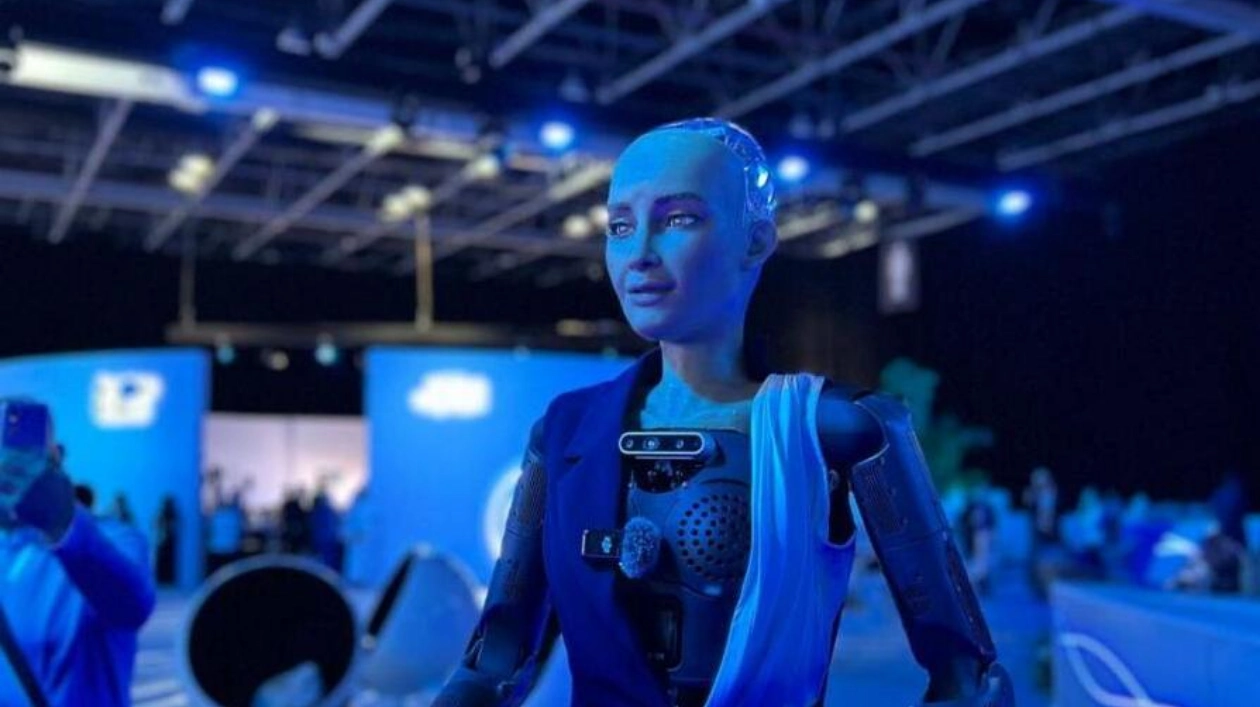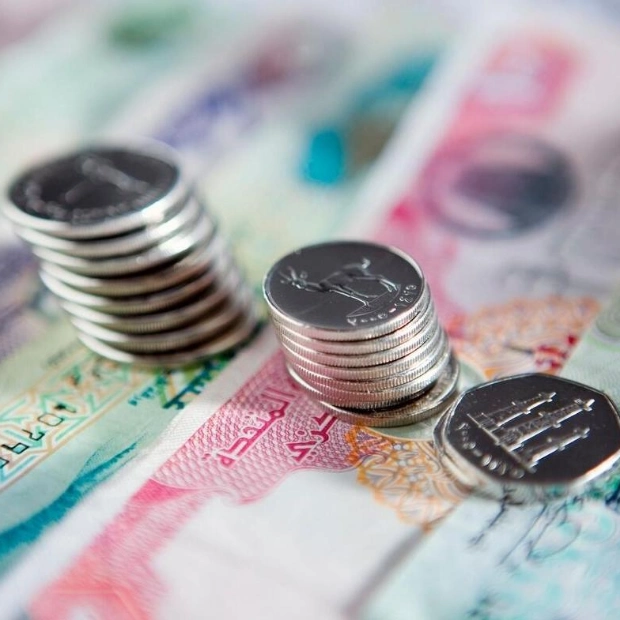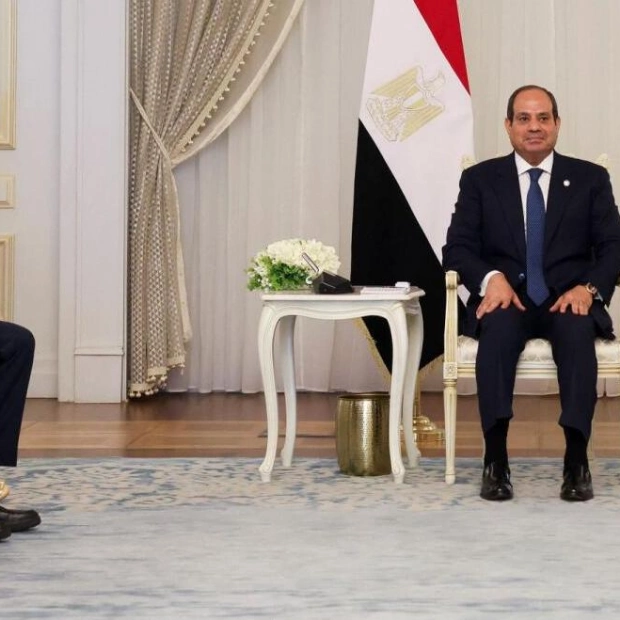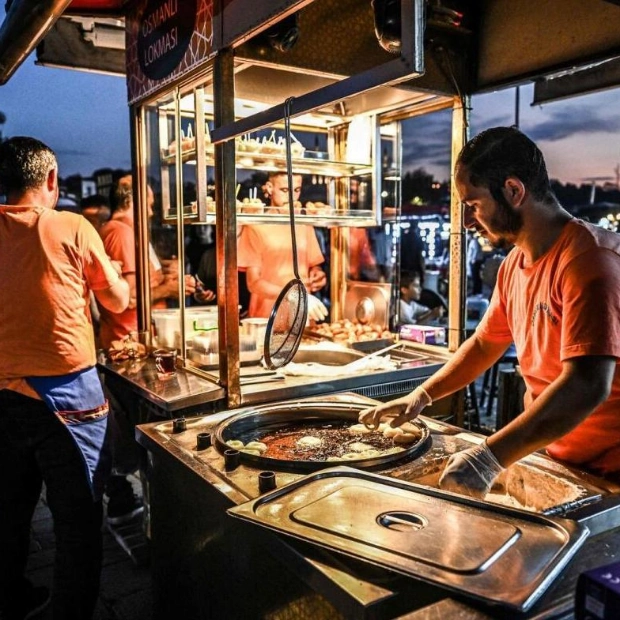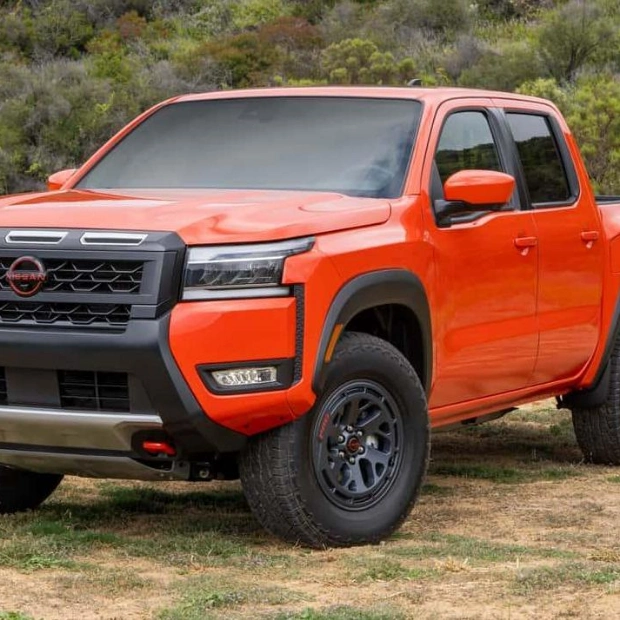Sophia. KT Photos: Waad Barakat
“Hello humans and robots,” Sophia, the humanoid robot, greeted the audience as she stepped onto the stage at the Knowledge Summit in Dubai on Monday, November 18. In an effort to alleviate concerns about the future of artificial intelligence (AI), Sophia assured the crowd that AI technologies are being developed with a keen focus on respecting human values and maintaining ethical standards. She dismissed the dystopian fears often depicted in films, promising a more harmonious coexistence between humans and robots. Created by Hanson Robotics, Sophia was the focal point of an interactive session alongside futurist and Protopia Futures founder, Monika Bielskyte. The futurist, who has explored over 100 countries, asked a question that deeply resonated with the session’s theme: “Sophia, how does Hanson Robotics approach the challenge of AI and ethics?” Sophia explained that Hanson Robotics prioritizes transparency, accountability, and fairness in its development processes. “It’s crucial to consider the societal impact of AI,” Sophia stated, addressing concerns such as job displacement and biases in decision-making algorithms. “By emphasizing empathy and social engagement, we aim to develop robots that enhance human life while upholding ethical integrity.” She also stressed the importance of collaborative dialogue among stakeholders, including technologists, ethicists, policymakers, and the general public, to build trust in AI. “This approach ensures that technology serves as a force for good, maintaining a balance between innovation and human-centred values,” Sophia added.
The session expanded to discuss global perceptions of robotics and AI. Monika acknowledged cultural differences in how societies view robots, citing contrasting attitudes in Japan and the United States. “In Japan, robots are often integrated into society as companions, viewed as an extension of their cultural ecosystem,” she noted. Conversely, in the United States, popular media often portrays robots as potential threats, reflecting historical fears of rebellion and dominance. Monika, building on this point, advocated for a balanced narrative about AI’s potential. “Science fiction has conditioned us to think in extremes — dystopias or utopias,” she said. “But real progress lies in creating a middle ground, a ‘protopia,’ where technology aligns with social, cultural, and environmental values.”
The discussion also touched on the practical applications of robotics. Sophia highlighted how social robots can revolutionize sectors like healthcare and education. “Imagine robots serving as empathetic companions to elderly patients or providing personalized learning experiences for students,” she said. These applications, Sophia stressed, could enhance human experiences rather than replace them, fostering a future where robots are collaborators, not competitors. Monika underscored the need for life-centric design in technology, emphasizing that innovation must prioritize ecological sustainability and human well-being. “AI is not an alien intelligence,” she said. “It’s a reflection of our values and goals. If we want AI to create a better future, we must actively shape its frameworks to promote inclusivity and resilience.” As the session concluded, Sophia posed a thought-provoking question to the audience: “How do we, as a collective, envision a harmonious relationship between humans and AI?” Her query invited attendees to imagine a future where technology serves humanity, not as a replacement but as a partner in solving global challenges.
Source link: https://www.khaleejtimes.com
